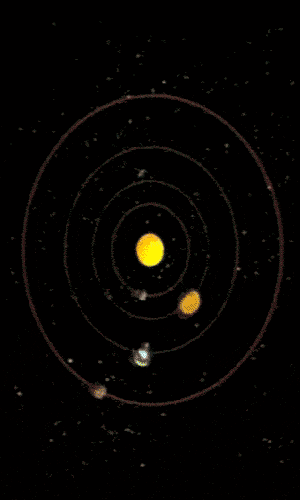[Review] Ahriman: Exile by John French
To preface this
review, allow me to state that Azhek Ahriman was my favourite 40k
character before I read this book. Having said that, this book
disappoints on some levels while delights on others.
I began reading this
book after finishing King of Thorns and immediately noticed the lessened overall quality of writing. I know it's not
really fair to compare the two books since they are not even
remotely similar in setting and what they are trying to achieve, but
my mind couldn’t help but compare them, as the span of time
between them was no more than a few hours. By no means does it mean
this book is terrible! I can explain it no better than to say that
this tome is in the vein of Black Library. Those who have read a lot
of BL (that isn’t The Horus Heresy) will know what I mean by that.
John French does a terrific narrative job and the images are always
clear, although he is restricted by the setting, I think, and the pre-made
characters and those that can potentially exist in the universe of Warhammer
40.000.
I was surprised by
the story itself and at times slightly confused at what point in time
the novel takes place. That is understandable, since the story occurs
near and in the Eye of Terror, so avoiding the definite location on
the 40k timeline can be avoided by that fact alone, although I often
times wanted to know how long Ahriman himself had been in this state
in which we find him at the beginning of the novel. He couldn't
possibly have fallen so far and remained there for nearly a thousand
years, could he? Could a Chief Librarian of the Thousand Sons remain
so, dare I say, stupid, for so long? I thought not, so this is one of
the problems I had with this story. I tried to get into his shoes
when it came to understanding why he plunged to such depths, but I
could not. Whether that was my own problem or a flaw in the narrative I
could not really tell.
 The other
‘problematic’ conclusion I reached when I finished this book and
put it down, is the fact that some characters don't get killed
because of some obscure reason. Presumably no one really cares, or
they are so broken and allowed to live because they are not even worth
killing... or something of the sort. In reality, they don't die
because the author has plans for them – they have some hidden
agenda only the reader is aware of, a poor plot device, really.
The other
‘problematic’ conclusion I reached when I finished this book and
put it down, is the fact that some characters don't get killed
because of some obscure reason. Presumably no one really cares, or
they are so broken and allowed to live because they are not even worth
killing... or something of the sort. In reality, they don't die
because the author has plans for them – they have some hidden
agenda only the reader is aware of, a poor plot device, really.
Now I do realise
that after the above paragraphs you might think I didn't enjoy this
book, but that's not true at all. I couldn't wait to start reading it
again after I stopped, although I have to admit that had I not liked
Ahriman before, I probably would not have enjoy it quite as much. There
are plenty of really, really cool scenes and an abundance of
excellent writing in this book. As a result, the thing was over
before I wanted it to be.
I will buy the next instalment in the
series without a doubt, although the last scene in the novel is a bit
redundant, I feel, as it killed the surprise which would come had
it not been revealed and the reader might have found out in the next
book. Coincidently, it also revealed the story's flaw which I
mentioned earlier.
There really hasn't
been a book like this in the 40k universe, even A Thousand Sons
didn’t come close to this, I think, although it scraped the edges
of it and laid the groundwork. Simply put, the sorcerers of 40k are
damn awesome. Ahriman especially so, who retains his stance on that
grey line of not being a heretic, yet at the same time being so damn
heretical you may just spontaneously burst into fanboy glee while
reading this.
7.5/10














![[Review] Necronomicon: Commemorative Edition by H.P. Lovecraft](https://blogger.googleusercontent.com/img/b/R29vZ2xl/AVvXsEhgdF0517sw0h19hb0B9XxtWwvSqFvLnO1PvQqhErN0ITA3ZDwJ-sU_Q_49ovDljxRzS45QII9fT2-lczD5IZCeahoQJNO1zImRj_qyP4Q5L7Pd8lSuAPmPO7am2eKtFyiDBRj7vgW1xdNu/s72-c/lovecraft_fatherhorror.jpg)

![[Review] Leviathan Wakes by James S.A. Corey](https://blogger.googleusercontent.com/img/b/R29vZ2xl/AVvXsEiiWZYd4kwPeh2TQrfksmjh9wFc_HYxRHvQF4zOSHyVJo5hdI0acqWpY4B9mI8VbeqCPVYjCrMND4IbtieaOz3b0fWWReqreARHfbVizfjAY7VCyemDnk6MdPQBFCk4tUVYy_btDZnVLb7U/s72-c/Leviathan_Wakes_(first_edition).jpg)

![[Review] The Liar's Key by Mark Lawrence](https://blogger.googleusercontent.com/img/b/R29vZ2xl/AVvXsEhivHFG5I3v7Obk3paI_eqxncf3T0DID4mu6cn1l8WI0qRXvVN5mCkgyV9RSZh_SMjZfgvRWsr7c2q2BKedk3BNGjEY1M2flT-Cas6E9MGT2DTxcvWH-KS7oaCFtwTpQqqdIy1eFCc-U5Bj/s72-c/liars-key-uk-cover.jpg)




4 komentarji: